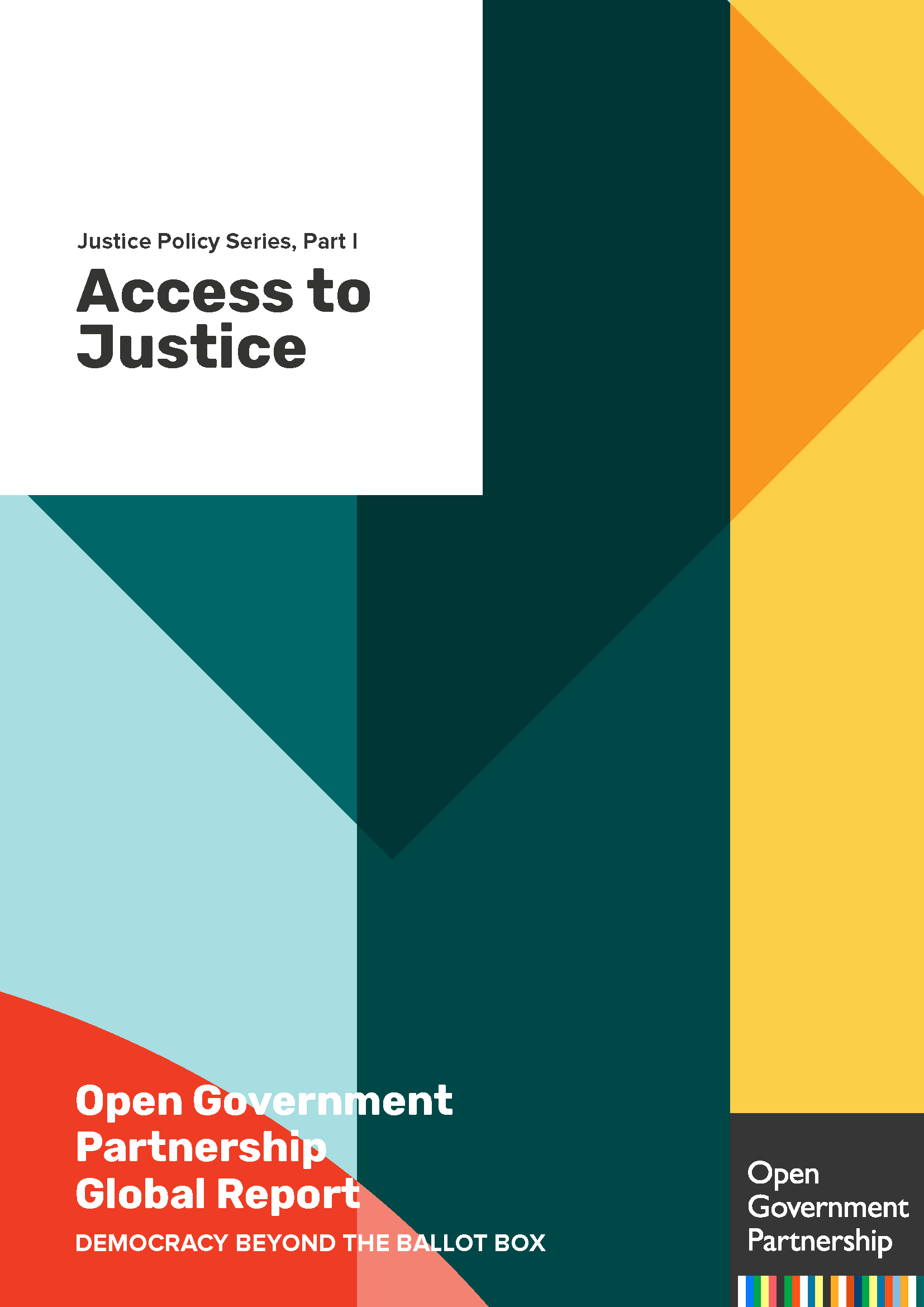

The open government community has seen growing support for linking justice to open government in recent years, spurred in part by alarming levels of exclusion from justice. According to the World Justice Project’s (WJP) justice gap assessment, more than 5 billion people have one unmet justice need, with many confronted by multiples injustices. Efforts to advance justice reforms have also been prompted by the inclusion of justice in the United Nations 2030 Agenda for Sustainable Development under target 16.3, which calls on member states to "ensure equal access to justice for all." Support for linking justice to open government has been further fueled by increased recognition that access to justice underpins poverty reduction, empowers citizens, bolsters anti-corruption efforts, and improves service delivery. These are essential components of the open government agenda.
In response to this momentum, the Open Government Partnership (OGP) just released a paper on Access to Justice, the first in a three-part policy series on justice produced as part of the OGP Global Report. The paper uses data from the World Justice Project’s (WJP) Global Insights on Access to Justice 2019 study to examine legal needs and access to justice in OGP countries, and links findings to relevant commitments in OGP two-year action plans. The WJP dataset provides comparable household survey data on legal needs and access to justice across 101 countries, representing the voices of more than 100,000 people.
Learn more on the OGP's blog in New Data Reinforce that Access to Justice is an Open Government Issue by Sarah Chamness Long, Director for Access to Justice Research at the World Justice Project (WJP).






